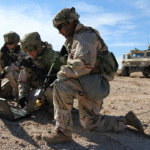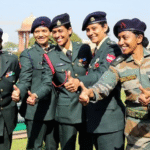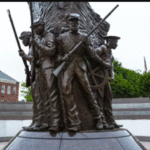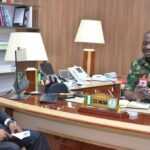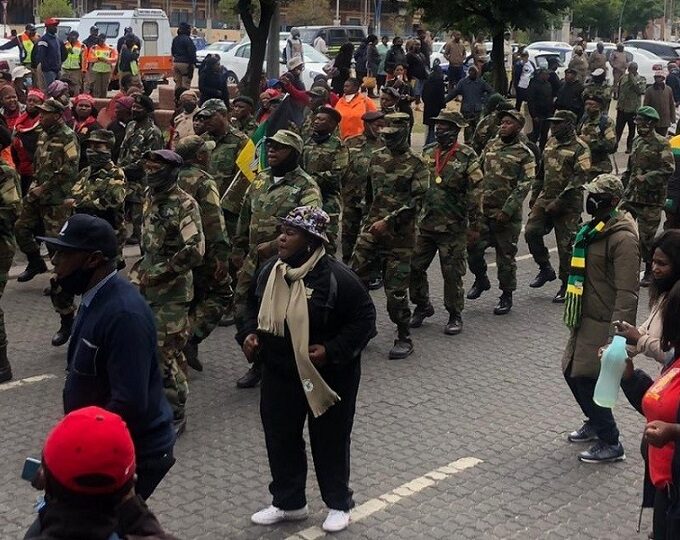From Combat to Civil Service: Veterans Transitioning into National Leadership
From peacekeepers to public administrators, from war rooms to boardrooms, veterans are demonstrating that their commitment to Africa does not end at the barracks gate. In an era of institutional rebuilding, their leadership—tempered by experience and duty—may be precisely what is needed.

Across Africa, a quiet but significant transformation is underway: former soldiers are becoming public servants, legislators, and national policymakers. From cabinet ministers and governors to local administrators and lawmakers, veterans are stepping from the battlefield into the political arena—bringing discipline, strategic thinking, and national service ethos into civilian governance.
This article examines the evolving role of African military veterans in leadership and public administration, mapping their impact, exploring systemic barriers, and offering policy suggestions to better support their transition from uniforms to suits.
A Tradition Reborn: Military to Government Pipelines
The tradition of military figures taking on leadership roles in post-conflict governance has deep historical roots in Africa:
- In the wake of independence movements, figures like Samora Machel (Mozambique), Agostinho Neto (Angola), and Jerry Rawlings (Ghana) transitioned from command to high office.
- During post-conflict stabilisation, Paul Kagame (Rwanda) and Yoweri Museveni (Uganda) exemplified military-to-civilian power transitions.
- In recent years, military veterans have re-emerged as credible actors in post-demobilisation governance, often entering public administration, security reform, or peacebuilding roles.
This movement is now evolving beyond presidencies. Ex-service personnel are increasingly filling technocratic and advisory roles at national and sub-national levels.
Contemporary Profiles: Soldiers in Public Office
Veterans across Africa are leveraging their experience for public service:
- Major General (rtd) Paul Ndiema (Kenya): Formerly of the Kenya Defence Forces, now a county commissioner in charge of security and disaster preparedness.
- Lt. Col. (rtd) Charles Okumu (Uganda): Appointed as a member of parliament, advocating for defence reforms and veteran welfare.
- Brig. Gen. (rtd) Sékouba Konaté (Guinea): Led the transitional government post-coup and initiated national reconciliation.
- Commodore (rtd) Ebiye Enai (Nigeria): Transitioned into the Federal Civil Service, helping coordinate maritime safety policy.
These individuals represent a growing cadre of veterans who bring operational discipline and leadership experience to complex civilian roles.
Why Veterans Matter in Governance
Veterans bring unique value to civilian institutions:
- Strategic decision-making under pressure
- Crisis management and inter-agency coordination experience
- A commitment to national unity and service
- Respect for command structures and loyalty to institutions
Research from the African Centre for Security Sector Governance (AfriSEC) shows that former military personnel in administrative roles are more likely to prioritise public service delivery, accountability, and state cohesion—especially in post-conflict or fragile states.
Challenges in Civil Transition
Despite their strengths, many veterans face serious obstacles in their move to civilian leadership:
- Credential gaps: Lack of civilian degrees or experience in public policy.
- Civil-military distrust: Some political systems remain wary of former soldiers wielding civic authority.
- Post-service identity crises: The shift from regimented service to unstructured civilian life can be psychologically challenging.
- Limited transition support: Few African countries have structured leadership pipelines or vocational retraining programmes for retiring officers.
In a 2023 survey by the African Veterans Public Leadership Forum, 62% of retired officers said they felt “ill-prepared” for civilian life and leadership, despite aspirations to serve.
Emerging Models of Support and Success
Some countries are creating structured avenues for veteran leadership:
- Rwanda’s National Itorero Commission trains ex-service members for community mobilisation and civic leadership.
- Ghana’s Ministry of the Interior reserves select public security roles for qualified veterans.
- South Africa’s Military Veterans Act includes provisions for leadership development and political participation.
- Nigeria’s Civil Defence Corps recruits ex-military personnel into roles bridging internal security and public administration.
These examples offer templates for national programmes that recognise, retrain, and reintegrate veterans into civilian leadership pipelines.
Civil-Military Balance: Guarding Against Overreach
While veterans bring value, safeguards are necessary to prevent a blurring of military and civilian roles:
- Veterans must transition fully from chains of command to democratic norms.
- Civic training and constitutional education should be mandatory for military personnel aspiring to public office.
- Political appointments of ex-soldiers should follow transparent and merit-based systems to avoid militarisation of governance.
This ensures that veterans serve not as symbols of military dominance, but as stewards of constitutional order.
Policy Recommendations: Leadership After the Uniform
- Veteran-to-Civil Leadership Programmes: Establish public policy fellowships, university placements, and mentorship networks for ex-military personnel.
- Incentivise Veteran Recruitment: Public sector hiring quotas or credit systems recognising military service.
- Create Civil Transition Units within Ministries of Defence to counsel and retrain retiring officers.
- Establish a Pan-African Veterans Leadership Network under the AU’s Peace and Security Council to share best practices.
- Promote Gender Inclusion: Ensure women veterans are included in all transition initiatives and leadership pathways.
Conclusion: Leading from a Different Frontline
Africa’s veterans are not relics of the past—they are assets for the future. With the right structures, support, and safeguards, retired military personnel can lead efforts in governance, policy, peacebuilding, and service delivery.
From peacekeepers to public administrators, from war rooms to boardrooms, veterans are demonstrating that their commitment to Africa does not end at the barracks gate. In an era of institutional rebuilding, their leadership—tempered by experience and duty—may be precisely what is needed.
Veterans in Public Service Snapshot (2023–2024):
- African countries with formal military-to-civil service transition schemes: 7
- Estimated number of veterans in civilian leadership roles: 5,000+
- % of veterans interested in post-service public office: 68%
- Countries with leadership training for retiring officers: Under 10
- Most common roles occupied by veterans: Security administration, disaster management, conflict mediation
Recent Posts
Categories
- Air & Aerospace16
- Border Security15
- Civil Security4
- Civil Wars4
- Crisis5
- Cyber Security8
- Defense18
- Diplomacy19
- Entrepreneurship1
- Events5
- Global Security Watch6
- Industry8
- Land & Army8
- Leadership & Training5
- Military Aviation5
- Military History27
- Military Speeches1
- More1
- Naval & Maritime9
- Resources2
- Security12
- Special Forces1
- Systems And Technology9
- Tech6
- Uncategorized3
- UNSC1
- Veterans6
- Women in Defence9
Related Articles
VETERANS – PENSION REFORM AND THE WELFARE OF AFRICAN MILITARY VETERANS
Across Africa, military veterans embody the sacrifices made for national liberation and...
ByKing Richard Igimoh, Group Editor ALOOctober 29, 2025Honouring Legacy: Military Museums and Memorials Across Africa
Africa’s military history is rich, complex, and often untold. From pre-colonial warrior...
Byadmag_adminJune 26, 2025Women Veterans in Africa: Breaking the Silence and Leading the Way
From frontline combat to strategic command, African women have served their nations...
Byadmag_adminJune 26, 2025Forgotten Heroes: The Untold Stories of African Peacekeeping Veterans
Africa has long been a crucial contributor to global peacekeeping, supplying tens...
Byadmag_adminJune 26, 2025


